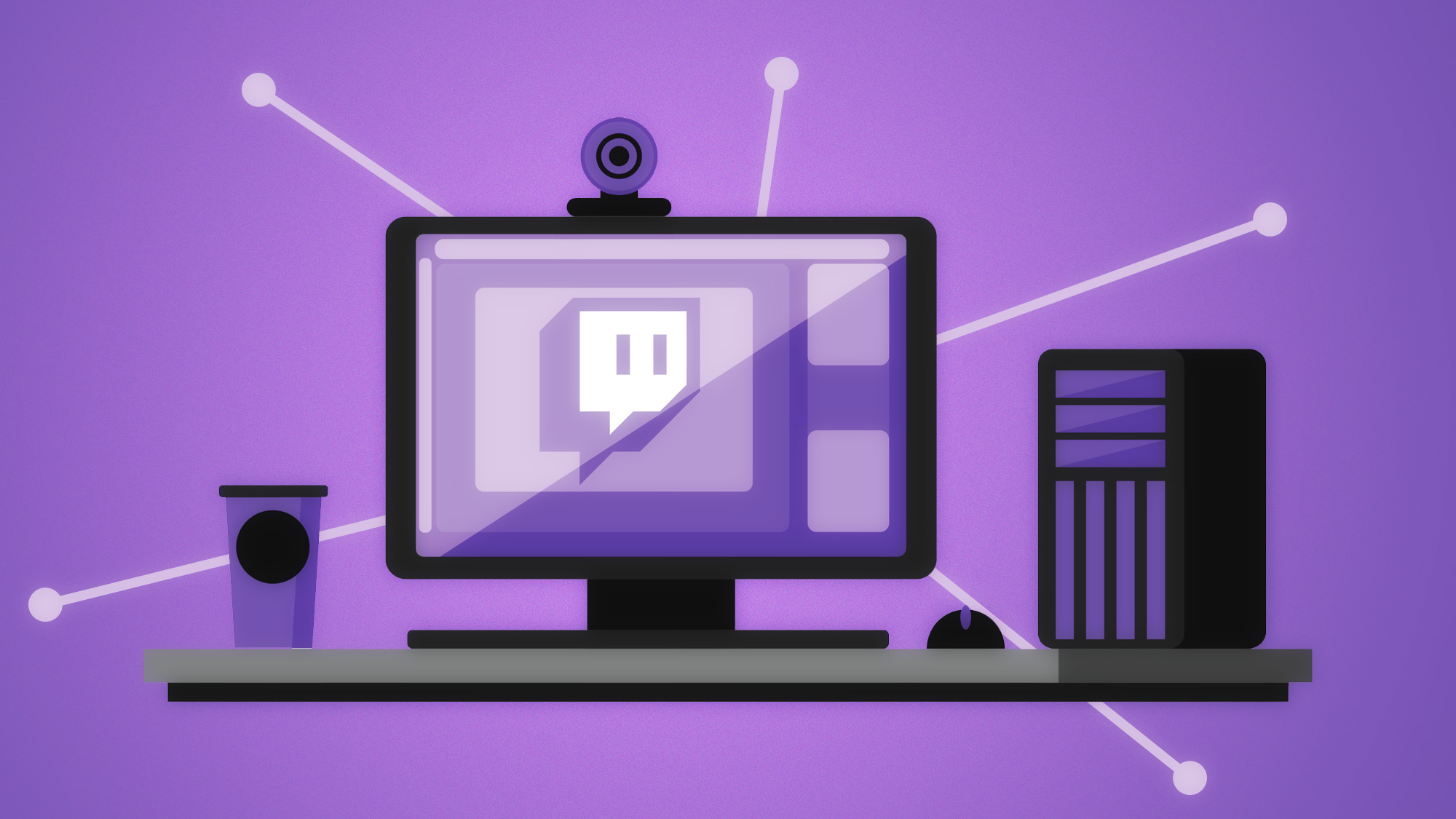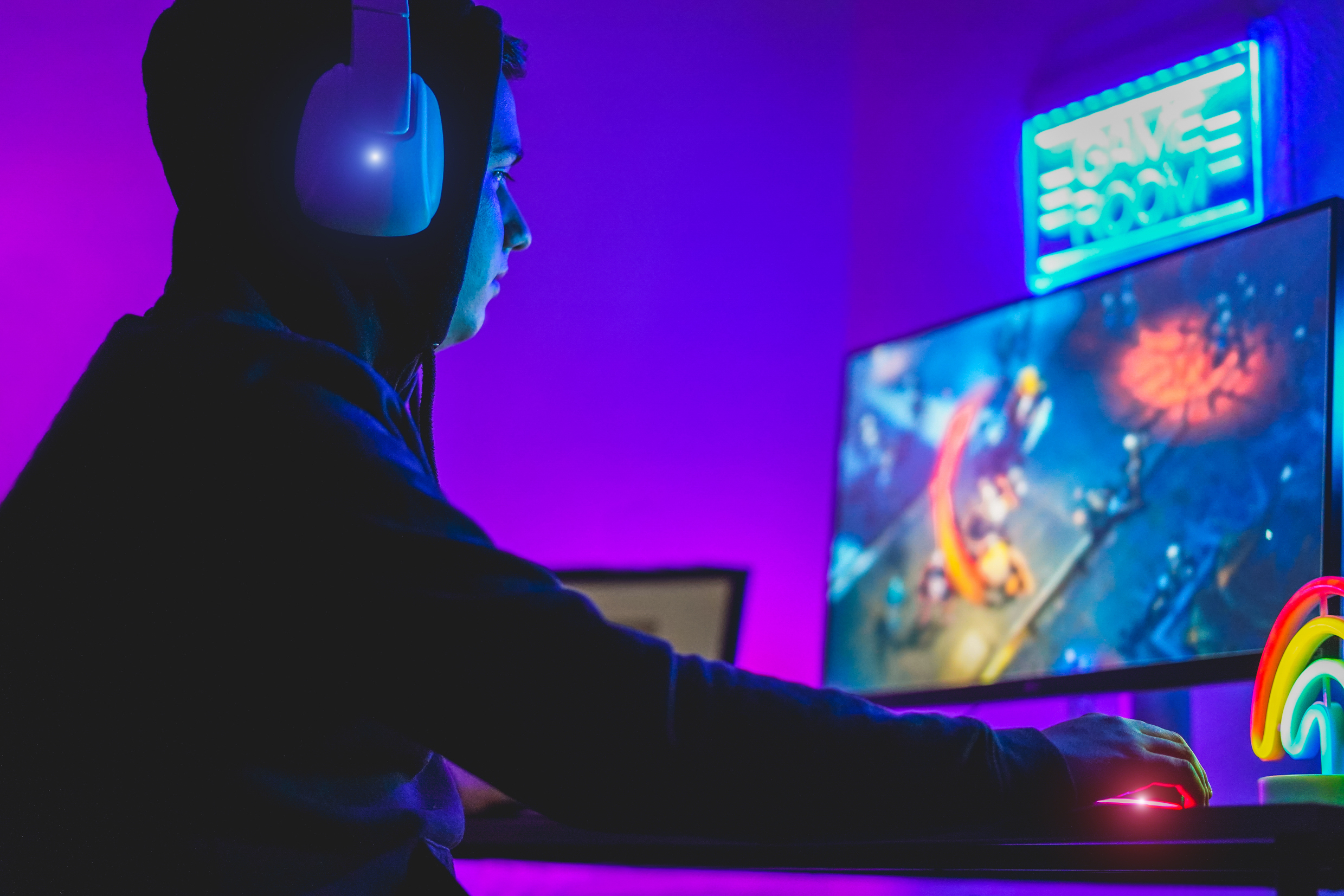Twitch is the new home of entertainment in the wake of coronavirus
Twitch is the new concert hall, sports arena and classroom in a time of social distancing

After a dramatic cinematic intro, Pittsburgh hardcore band Code Orange tears into the blistering "Swallowing the Rabbit Whole" to kick off the release show for their new record Underneath. The six-piece is delivering a fiery set at the Roxian Theatre, the type of big, moody concert hall that the outfit is no stranger to playing. But this time, the venue is empty, and Code Orange is playing to no one. Well, no one except for the 13,000 viewers watching on Twitch.
Like many musical artists, Code Orange suddenly found themselves having to cancel their upcoming tour dates due to the global COVID-19 coronavirus outbreak. But instead of sitting idle, the band got creative, putting on an incredible production that interwove cryptic pre-recorded footage and slick special effects with a full live performance that made fans feel like they were right there in the venue.
- How to stream to Twitch
- The best gaming laptops you can buy
Code Orange's epic online performance is just one of many examples of creators using platforms such as Twitch to stay connected with fans during an unprecedented crisis -- and also gives us a glimpse of the future of entertainment.
Taking the show online
Artists of all kinds have taken to livestreaming to find a way to perform for fans at a time when safety precautions strictly forbid large public gatherings. Spend any given night on the web these days, and you might find John Legend crooning on Instagram Live, or Diplo dropping beats on Twitch.
One of these artists is John Black, a singer, songwriter and producer from New York City. He had already been considering Twitch as a viable source of revenue for quite a while -- all it took was a global emergency to give him the extra nudge.
"Prior to the outbreak of COVID-19, my friend Kyle Cope had brought this to me as an idea as a possible untapped resource for where the music industry might be heading in the wake of Spotify and the like essentially giving music away for free," said Black. "I was frustrated after seeing thousands of streams of my music every quarter and getting a check at the end of it for like, say, $10.32."
"Low and behold," he continued, "The catalyzing event to get that party started turned out to be an international pandemic."
Sign up to get the BEST of Tom's Guide direct to your inbox.
Get instant access to breaking news, the hottest reviews, great deals and helpful tips.
Black now streams almost nightly on his Twitch channel, playing a mix of original songs, covers and fan requests to a few dozen viewers every evening. Not only has Black found fulfillment in his online performances -- he also notes that it has some key advantages to performing in person.
"I love interacting with people in the live setting," said Black. "Being able to throw in a cover that they love, or an original that they’ve been requesting for years, and seeing their responses and jokes come through in real time, sometimes even leading me to screw up because I’m laughing. I also don’t need to go load into a dank dive bar venue [or] wait around awkwardly for the doors to open."
Staying connected through streaming
The rise of online musical performances is just one of several ways that livestreaming platforms such as Twitch and Mixer are keeping people more connected than ever in the wake of a global health pandemic.
According to StreamElements, a company that provides tools and services for streamers, livestream viewership grew over 66% in Italy following the country's quarantine amongst thousands of popular Twitch, YouTube, Facebook and Mixer channels. StreamElements also notes that Australia's stream viewership has grown by 20% over the same time period. Globally speaking, Twitch viewership rose by 10% while YouTube Gaming viewership went up by 15% week-over-week during the week of March 14, which is when many people around the world began spending more time at home.
"With people social distancing and being quarantined in their homes, they are now spending more time online with the live interactive medium since it is the perfect antidote for the absence of [real life] interactions that many are probably feeling," said StreamElements CEO Doron Nir.
NYU Game Center professor Robert Yang recently took to Twitch to teach his class about livestreaming (yes, he did this via a livestream -- talk about meta). In the wake of the 2020 NBA season suspension, the Phoenix Suns have begun playing their scheduled games virtually via NBA 2K20 and streaming the action online. Pol Lorente, the fitness trainer for Spanish soccer club Leganes, has been livestreaming his daily workout sessions to Twitch in order to allow both his team and fans around the world to exercise along with him.
Classrooms, sports arenas and gyms might all be empty right now, but livestreaming has allowed these professionals to continue to do their work -- and stay connected to their students and fans.
"We've received inquiries from a number of organizations about streaming on Twitch as large-scale events and experiences continue to be canceled in light of concerns around COVID-19," said Twitch COO Sara Clemens in a statement. "Where possible, we are working with these groups to help bring those experiences to life."
The future of entertainment
While many are using Twitch and similar platforms as a makeshift solution for not being able to perform, teach and create in-person, streaming just might become one of their main revenue streams someday. The rise of livestreaming in the wake of our current crisis demonstrates that Twitch, Mixer and YouTube aren't just tools — they're the future of entertainment.

"We encourage all entertainment industries and professionals to explore how their craft can transition to the livestreaming medium," said Nir. "And not just because it offers a potential outlet during this particular crisis, but because livestreamed entertainment is where the future is heading."
Black plans on continuing to use Twitch even when he's able to get back to performing in-person, and wants to expand his livestream to showcase listening parties and in-studio performances from his clients.
"Don't wait on this," said Black when asked what advice he'd give to fellow creators around streaming. "If and when we get through this whole thing, the landscape of the whole world will have changed and adapted to streaming culture."
Fortunately, going live is easier than ever these days. As you'll see in our how to stream to Twitch guide, all you need to put on a quality stream from your PC or Mac is a decent microphone, webcam and some basic, free software. You can even go live right from your phone via the Twitch, YouTube and Facebook apps, as well as stream from your PS4 or Xbox One with no added software needed.
Those are just a few examples, but the key point is this — there's never been a better or easier time to stream. And no matter what you do for a living, Twitch could someday be your main venue for it.
Mike Andronico is Senior Writer at CNNUnderscored. He was formerly Managing Editor at Tom's Guide, where he wrote extensively on gaming, as well as running the show on the news front. When not at work, you can usually catch him playing Street Fighter, devouring Twitch streams and trying to convince people that Hawkeye is the best Avenger.

